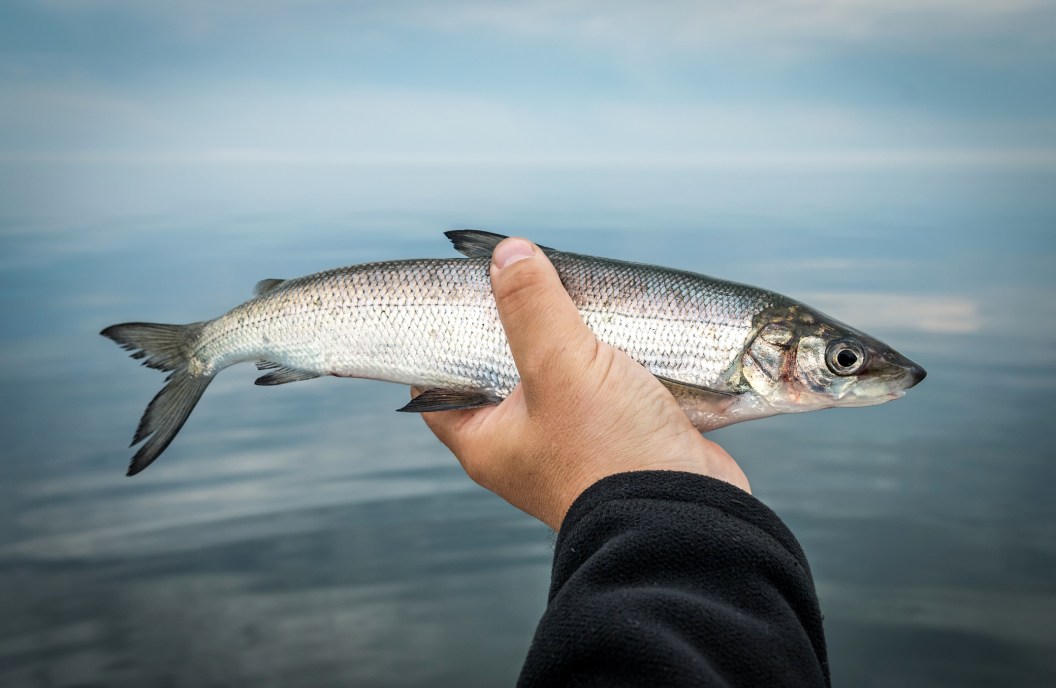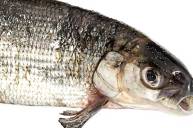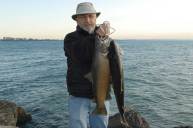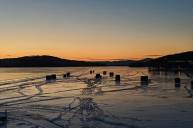Whitefish, a staple of Michigan's commercial fishing industry and homegrown culture, are approaching population collapse in Lake Huron and Lake Michigan. Biologists are hoping that a program to relocate eggs will be enough to save the struggling species.
The current whitefish crisis in Michigan has been decades, or even centuries, in the making. But now, a solution is running out of time, experts say.
Whitefish have been a cornerstone of the region's culture for eons. The mild-tasting whitefish is still served up on at many of the state's eateries, and is synonymous with northern Michigan, local restaurant owner Mark Smolak said; losing it would be like losing a part of the local culture and identity. But the decline in whitefish harvest has been severe in the last decade: It's fallen from 6.3 million pounds of fish in 2011 to 1.6 million pounds last year.
For thousands of years, indigenous people in the region used abundant whitefish stocks in soups and various other dishes. But when European settlers arrived and started to dam rivers and log forests, it clogged up whitefish spawning grounds with sawdust and blocked them from traveling upstream. These changes to the habitat destroyed the whitefish's river-spawning bloodline, but the species persisted in the cold waters of the state's lakes.
Whitefish live the majority of their lives in fresh, cold water, but have the instinct to travel upstream to spawn. So, they lay eggs on rocky river bottoms and shallow reefs, which unfortunately, leave the eggs open to many threats, including predatory fish and sun exposure. Decades of habitat degradation has slowly but surely decreased the whitefish population in Michigan, but the invasion of non-native zebra mussels and quagga has served as a nail in the coffin for the struggling species in recent years by stripping the waters of much-needed nutrients.
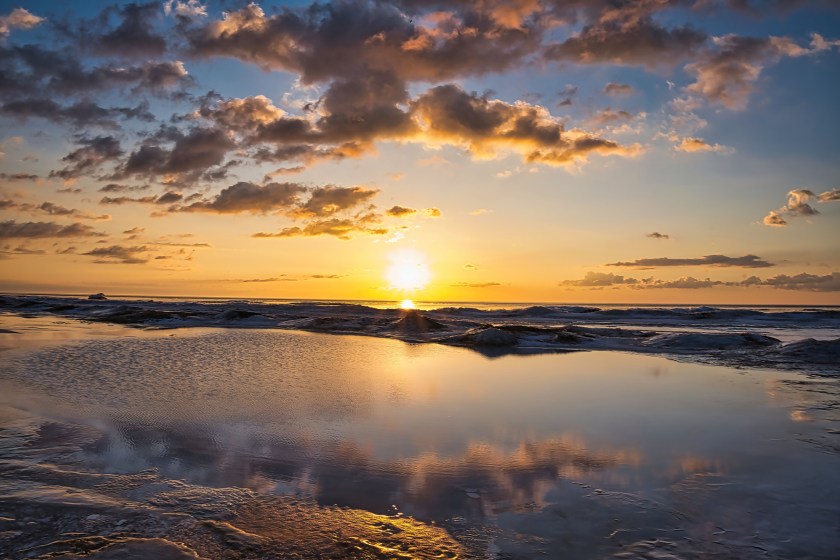
Getty, Wirestock
The bleak ecosystem in Lake Michigan and Lake Huron is stunningly apparent in the water's vivid clarity. Nowadays, the sun's harmful ultraviolet rays blaze through the water's surface to burn the whitefish's delicate eggs. The few eggs that hatch into viable fish are met with few options for sustenance in the barren environment they are born into. No wonder the whitefish population in these lakes has not had a decent spawning season in nearly twenty years.
Now, biologists have hatched a plan to scoop whitefish eggs up from where they are laid, relocate them to a safer spawning ground, and hope that this effort sparks a fresh generational pattern for spawning whitefish.
It is a collective effort to save the state's whitefish. Several agencies, including the Little Traverse Bay Band, Sault Ste. Marie Tribe of Chippewa Indians, Bay Mills Indian Community, The Nature Conservancy and the Michigan Department of Natural Resources are now working to rebuild the whitefish river runs. In 2022 and 2023, groups placed whitefish eggs in incubators in the Carp River; this year, they'll transplant some 120,000 eggs in the Jordan River.
"We don't know where things are going to be in 10 years," Amanda Holmes, executive director of the Fishtown Preservation Society, said. "But there is a sense that they're not going to be good if we don't try to do something, and it needs to happen sooner versus later."
READ MORE: Check Out this Massive Minnesota Record Whitefish
